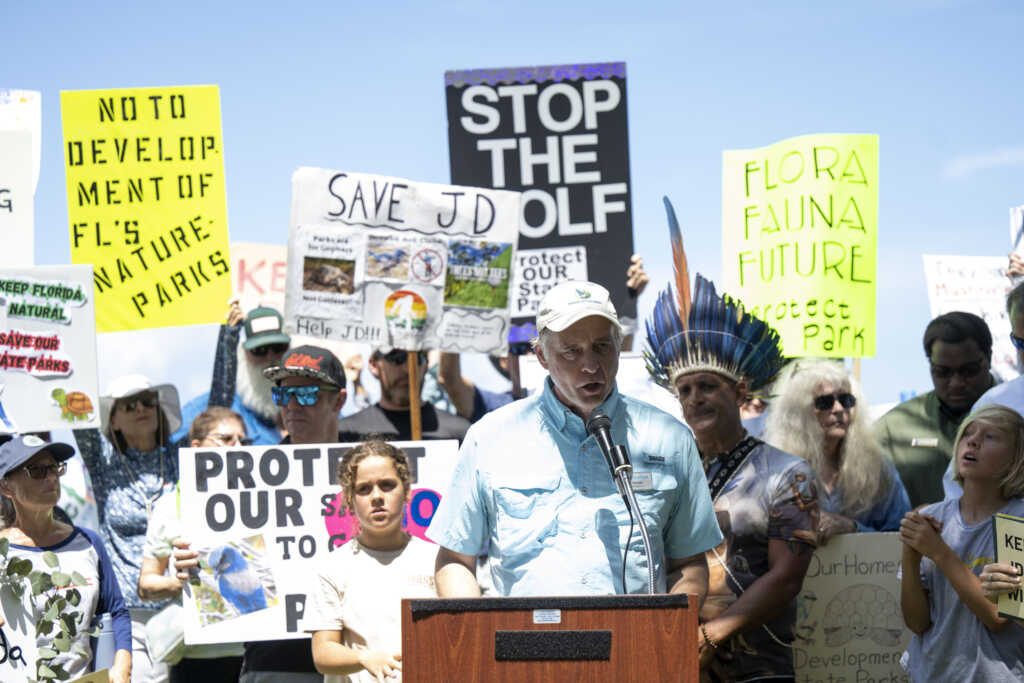2025 Florida Legislative session winds down; last-second drama for state parks bill
2025 Florida Legislative session winds down; last-second drama for state parks bill

We’re in what was supposed to be the final week of the Florida legislative session, but as of this writing the House and Senate budget proposals were still billions apart. That means the session will either be extended, or legislators could be sent home, then recalled for a special budget session before the fiscal year ends June 30.
The good news this session: Not all the bad bills passed. The bad news: Some did.

And some remained in limbo. That includes the Senate State Parks bill, SB 80, which was temporarily postponed Tuesday but was back on the Senate floor on Wednesday, where the Senate took up the (better, more protective) language in the House bill, HB 209. A relatively minor amendment was proposed and adopted, the Senate passed the bill and it then went back to the House, voted unanimously in favor Thursday around noon.
Once Gov. Ron DeSantis signs the legislation (ahem) our parks will have more robust protections than before. And that will be a very good thing.
For other bills we’ve been watching, it was a mixed bag. Senate Bill 492, “Land Development” (formerly “Mitigation Banking”) passed; this bill would, among other things, let developers impact wetlands in one “service area” (watershed) and “mitigate” the harm by buying mitigation credits generated elsewhere.
In other words you could destroy wetlands in Miami so long as you bought mitigation credits generated in Levy County. And Levy County might have the best dang wetlands in all of Florida! Miami, not so much.
Democratic Sen. Lori Berman raised the prospect of a Constitutional challenge to the bill if passed. But Senators shrugged it off and voted “yes.”
But good news on another front: attempts to simplify the development of “agricultural enclaves” appear dead. Initially voted down by the Senate, SB 1080 was resurrected and the bill language permitting development on “agricultural enclaves” (farmland surrounded by development) that would allow the landowner to avoid the public hearing process was stripped out by amendment. The bill then passed.

And questions still loom. Senate Bill 7002/House Bill 1169, which would impose new budgetary requirements on water management districts, could impact the pace of Everglades restoration projects. Then there’s the COST of Everglades restoration projects, one of many sticking points in the jockeying over the budget. Gov. Ron DeSantis has proposed $805 in Everglades spending; the Senate has proposed $750 million, while the House has proposed $357 million.
And last but not least: There’s always the chance bad ideas could be grafted onto budgetary legislation in order to push it through at the 11th hour without public scrutiny. Surely you remember the SB 2508 fiasco of a few years back?
Bottom line: this legislative session wasn’t as bad as it might have been. But it was bad enough — and more proof that our legislature needs to do more to prioritize clean-water and the environment over the needs of special interests.


